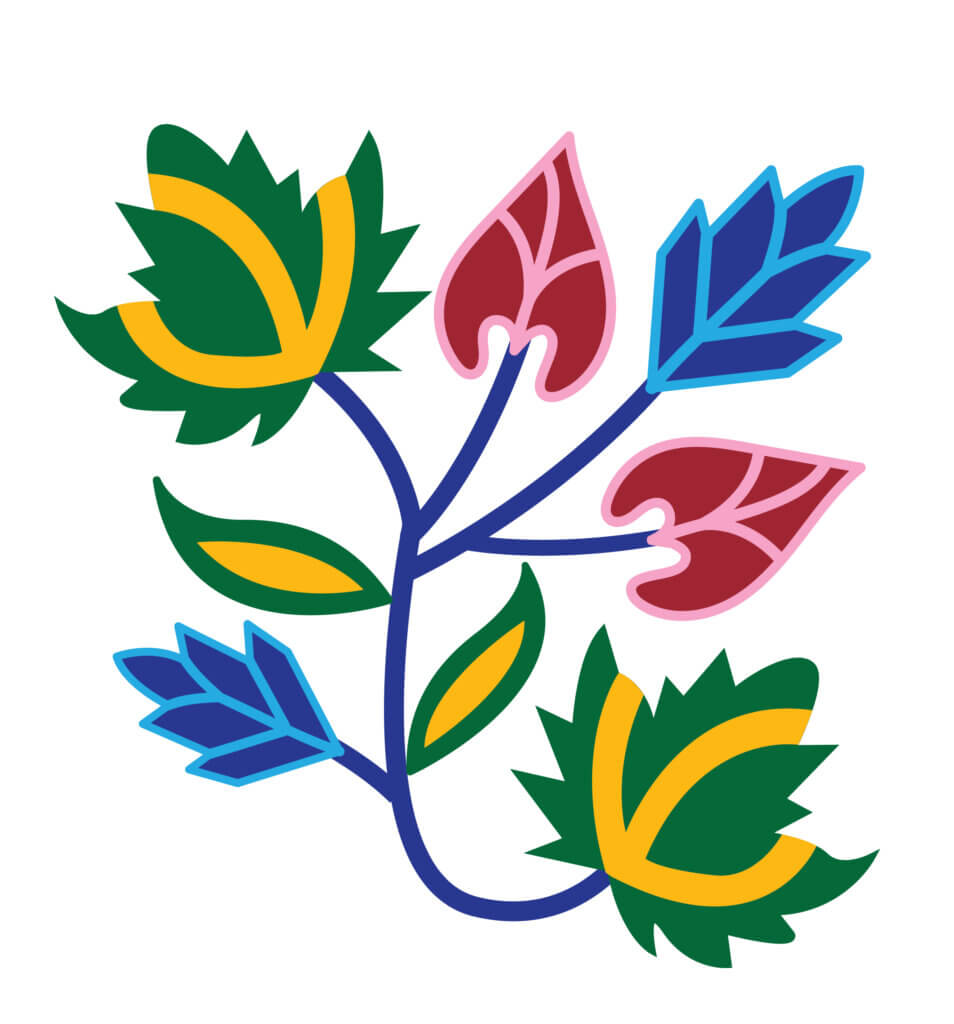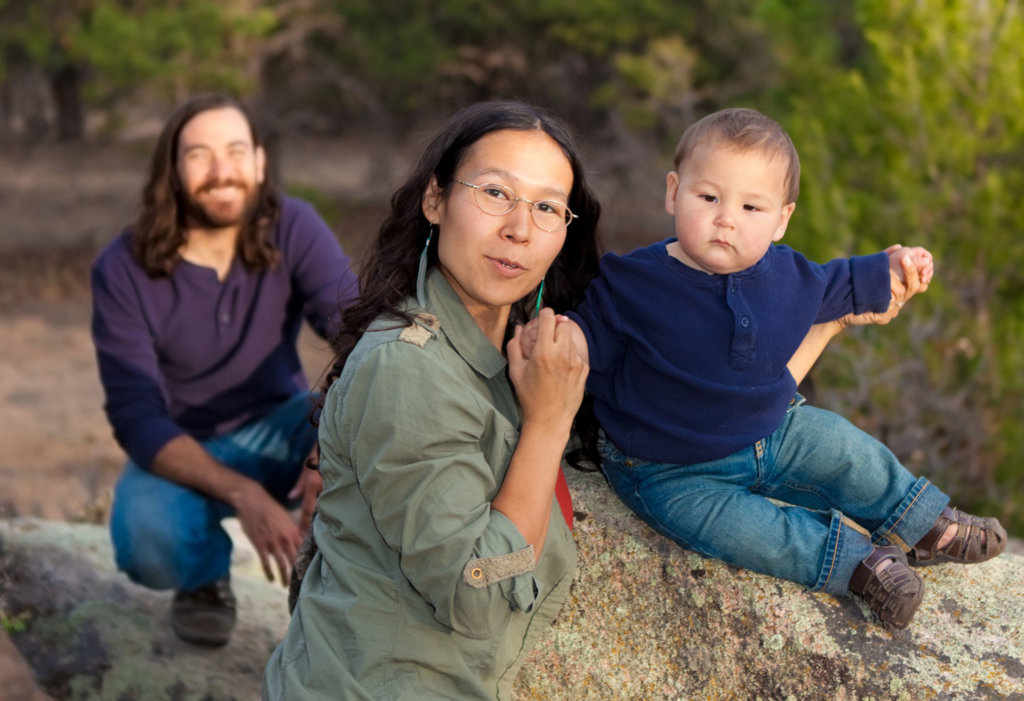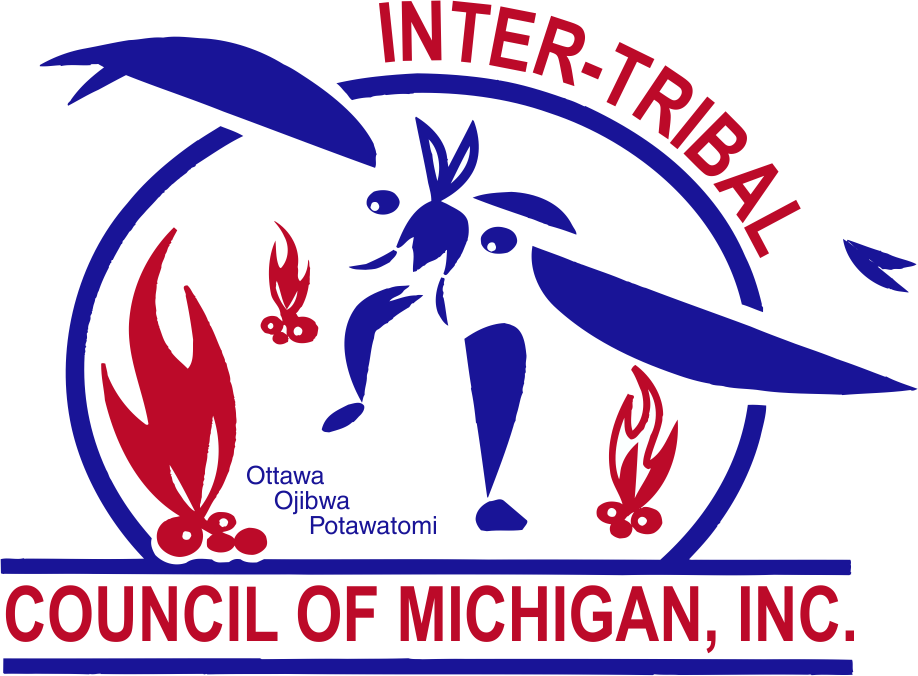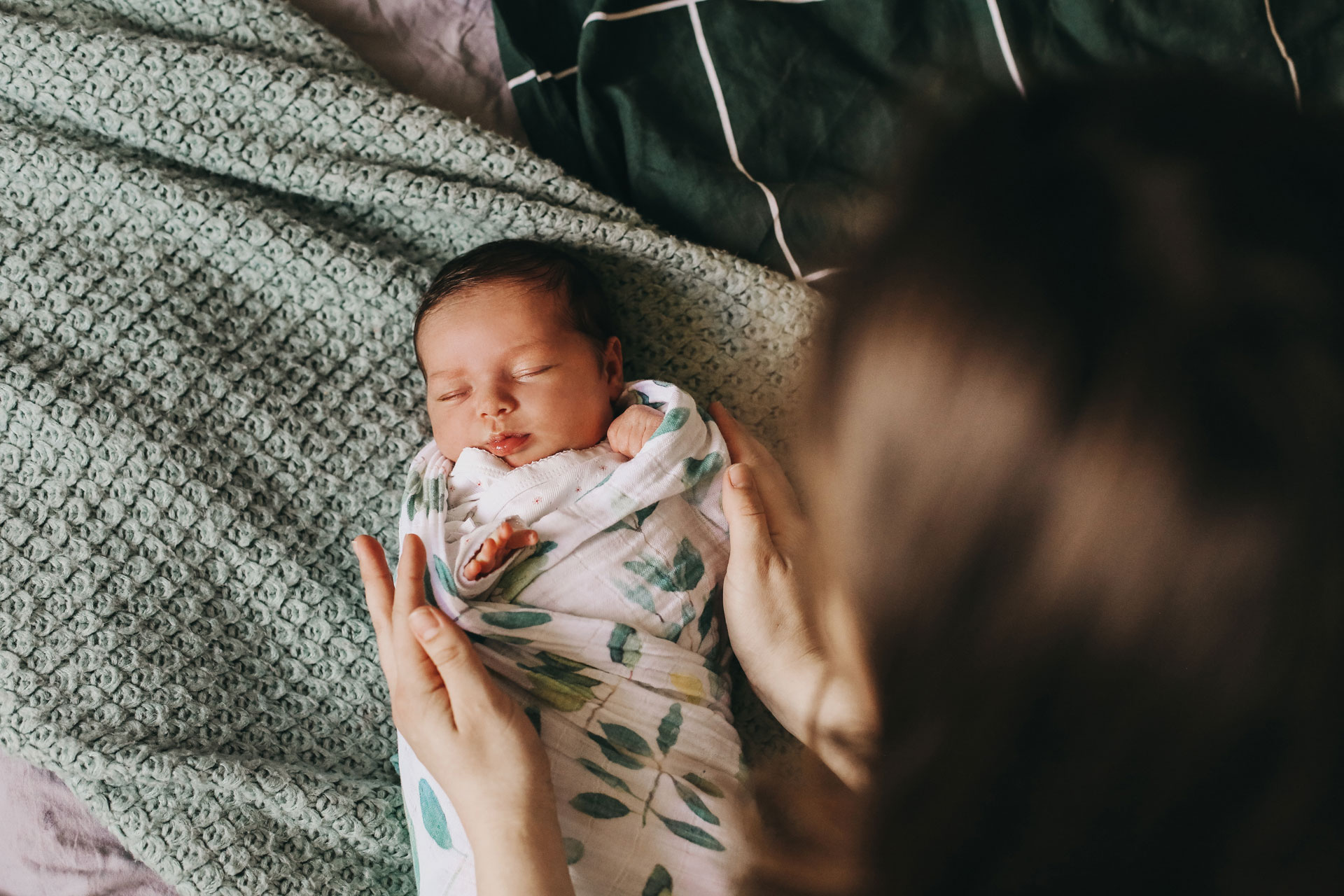Living Stories and Seasonal Reflections from Gichigami...
Read MoreTag: Maternal Program
Maternal Program
Wiba Anung Partnership

Wiba Anung translates to “early star” in Anishinaabemowin and is a partnership between Michigan State University and the Inter-tribal Council of Michigan. The Wiba Anung partnership started in 2005 and involves expertise and collaborative efforts between researchers, parents, early childhood programs and staff, and elders in tribal communities. This collaborative relationship was formed to serve Michigan American Indian children and their families. Work from this partnership includes research, training, and information gathering that are essential for identifying strengths in tribal early childhood programs as well as areas of concern. This partnership is a strong advocate for effective data use that supports the health and well-being of indigenous children and families in Michigan. The work of Wiba Anung is a critical contribution to health equity efforts in the state. This relationship is rooted in regional Anishinaabe cultural contexts and is innovative in its contributions to scientific rigor by highlighting specific mechanisms by which cultural practices support children’s development.
Programs & Resources
Maternal Program
Perinatal & Mental Health

Maternal Program
State Home Visiting Expansion
Michigan Early Childhood Home Visiting Tribal Expansion

The Michigan Early Childhood Home Visiting Tribal Expansion program’s purpose is to support the provision of evidence-based home visiting services within tribal communities in Michigan, and thereby expanding the reach of Tribal home visiting within the state. This program is funded through a grant supported by the State of Michigan’s general funds and seeks to address persistent disparities in maternal, infant, and early childhood health and social indicators among the American Indian and Alaska Native (AI/AN) population through delivery of home visiting services. The project aims to expand the capacity of an existing network of services, furthering progress toward a comprehensive, high-quality early childhood system.
State Home Visiting Expansion services are supported within the following tribal communities and serve expectant families with young children aged birth to 5 years old.
Participating Tribes
- Little River Band of Odawa Indians
- Pokagon Band of Potawatomi
- Sault Ste. Marie Tribe of Chippewa Indians
Program Goals
The goals of the State Home Visiting Expansion Program include:
- Supporting the development of happy, healthy, and successful American Indian and Alaska Native (AI/AN) Children and families through a coordinated home visiting strategy that addresses critical maternal and child health, development, early learning, family support, and child abuse and neglect prevention needs.
- Implementing high-quality, culturally-relevant, evidence-based home visiting programs in AI/AN communities.
- Expanding the evidence base around home visiting interventions with Native populations.
- Supporting and strengthening cooperation and coordination and promoting linkages among various early childhood programs, resulting in coordinated, comprehensive early childhood systems.
Coordinated Services
Collaboration is important to our programs at Inter-Tribal Council of Michigan. Within the Maternal & Early Childhood Services Department this can be seen specifically between our Tribal Home Visiting, Healthy Start, and State Funded Home Visiting Programs. These programs have joined forces as individual pieces of an overall, inter-tribal network of home visiting programs and services coordinated by the Inter-Tribal Council of Michigan in partnership with Michigan tribes. The programs to the communities appear as one, and are often referred to by staff as the “Healthy Start-Family Spirit” Home Visiting program. The development of the Healthy Start-Family Spirit Home Visiting program is one key aspect of our comprehensive, coordinated early childhood system with all programs using the Family Spirit Model as a basis for providing home visitation services. In addition, the programs share client-friendly referral procedures, using common assessments, collection of common data elements, cross-training of staff, and cross-program case management. This allows for a seamless transition between programs for home visiting clients.
Contact Information
- Amanda Bahrou | amanda@itcmi.org | Program Director
- Amanda Rinna | amanda.rinna@itcmi.org | Program Coordinator
Maternal Program
Tribal Home Visiting
Tribal, Maternal, Infant, and Early Childhood Home Visiting (TMIECHV)

The Maajtaag Mnobmaadzid Tribal Home Visiting Initiative seeks to address persistent disparities in maternal, infant, and early childhood health and social indicators among the American Indian (AI/AN) population through delivery of home visiting services. The project aims to expand the capacity of an existing network of services, furthering progress toward a comprehensive, high-quality early childhood system.
Tribal Home Visiting services are supported within the following tribal communities and serve expectant families and families with young children aged birth to kindergarten entry.
Participating Tribes and Organizations
- American Indian Health and Family Services
- Bay Mills Indian Community
- Lac Vieux Desert Band of Chippewa Indian Community
- Little Traverse Bay Bands of Odawa Indians
- Keweenaw Bay Indian Community
- Nottawaseppi Huron Band of the Potawatomi
- Pokagon Band of Potawatomi
- Saginaw-Chippewa Indian Tribe
Program Goals
The goals of the Tribal Home Visiting Program include:
- Supporting the development of happy, healthy, and successful American Indian and Alaska Native (AI/AN) Children and families through a coordinated home visiting strategy that addresses critical maternal and child health, development, early learning, family support, and child abuse and neglect prevention needs.
- Implementing high-quality, culturally-relevant, evidence-based home visiting programs in AI/AN communities.
- Expanding the evidence base around home visiting intervnetions with Native populations.
- Supporting and strengthening cooperation and coordination and promoting linkages among various early childhood programs, resulting in coordinated, comprehensive early childhood systems.
Coordinated Services
Collaboration is important to our programs at Inter-Tribal Council of Michigan. Within the Maternal & Early Childhood Services Department this can be seen specifically between our Tribal Home Visiting, Healthy Start, and State Funded Home Visiting Programs. These have joined forces as individual pieces of an overall, inter-tribal network of home visiting programs and services coordinated by the Inter-Tribal Council of Michigan in partnership with Michigan tribes. The programs to the communities appear as one, and are often referred to by staff as the “Healthy Start-Family Spirit” home visiting program. The development of the Healthy Start-Family Spirit Home Visiting program is one key aspect of our comprehensive, coordinated early childhood system with all programs using the Family Spirit Model as a basis for providing home visitation services. In addition, the programs share client-friendly referral procedures, using common assessments, collection of common data elements, cross-training of staff, and cross-program case management. This allows for a seamless transition between programs for home visiting clients.
Contact Information
- Amanda Bahrou | amanda@itcmi.org | Program Director
- Amanda Rinna | amanda.rinna@itcmi.org | Program Coordinator
- Josie Babcock | josie.babcock@itcmi.org | Data and Reporting Manager
- Sandy Thompson | sthompson@itcmi.org | Administrative Assistant
Maternal Program
Healthy Start

Maajtaag Mnobmaadzid, “The Start of a Healthy Life”
Healthy Start is a national infant mortality prevention initiative funded by the U.S. Department of Health and Human Services, Health Resources and Services Administration, Maternal and Child Health Bureau. Our project is one of about 100 federally-funded projects around the country, and includes 10 sites: Bay Mills Indian Community, Grand Traverse Band of Ottawa and Chippewa Indians, Hannahville Indian Community, Keweenaw Bay Indian Community, Little Traverse Bay Bands, Nottawaseppi Huron Band of Potawatomi, Pokagon Band of Potawatomi Indians, Saginaw Chippewa Tribe, Sault Tribe of Chippewa Indians,and American Indian Health & Family Services of Southeast Michigan. Healthy Start focuses on access to and use of health services for women and their families, strengthening local health systems and increasing consumer input into these systems of local care. Each year, we provide personalized, supportive case management to between 600 and 700 people, and community outreach and education services to over 4,000 people in 14 counties in Michigan.
Core Strategies: Healthy Start features evidence-based practices and innovative, culturally informed community-driven interventions. Beginning with direct outreach by community health workers to pregnant and postpartum women, we ensure that mothers and infants have ongoing sources of primary and preventive health care and that their basic needs (housing, psychosocial, nutritional and educational support) are met. Following risk assessments and screening for perinatal depression, case managers provide linkages with appropriate services and education. Most services are delivered through home visiting. Mothers and infants are followed from entry into prenatal care through 2 years after delivery. The project has strong collaborative linkages with State programs including Title V MCH Block Grant, Medicaid, State Child Health Insurance Program, and with local agencies and services.
Success: Since the introduction of Healthy Start in 1997, we have seen a steady downward trend in American Indian infant mortality within the project area, with the disparity gap narrowing between White and American Indian infants. Other trends include a marked increase in first trimester prenatal care, lower prematurity rates, an increase in those securing a medical home, increased screening for pregnancy and postpartum health risks, and increased use of culturally competent elements in policies, guidelines and trainings.
Maternal Program
FFPSA/Family Spirit
The Federal Family First Prevention Services Act (FFPSA) was enacted to turn the focus of the current child welfare system toward keeping children safely with their families to avoid the trauma that results when children are placed in out-of-home care. In Michigan, one of th eways this will be achieved is through expanding effective home visitation services for families encountering the child welfare system and to support families to prevent them from encountering the child welfare system. Only evidence-based programs listed on the Title IV-E Clearinghouse are eligible for FFPSA funding. Parents as Teachers, Healthy Families America, Nurse Family Partnership, and Family Spirit (listed on the FFPSA Clearinghouse as a Promising Program) are the eligible models for expansion. Communities were chosen based on data and community needs.
The goal of this initiative is to increase the participating in home visiting to decrease the need for families to encounter the child welfare system and to support families with involvement in the child welfare system to decrease child abuse and neglect and children entering the foster care system. The Family Spirit/FFPSA program will ensure culturally appropriate services are provided to our tribal families meeting the criteria listed above.

Videos
Issue Briefs & Reports
More information coming soon.
Infant Safe Sleep
PROTECT AND NURTURE STARTS WITH SAFE SLEEP
Maternal Program

Welcome to our Infant Safe Sleep Resource site. We have a number of resources to help parents, providers, and tribal home visitors to follow safe sleep guidelines. This website is intended to be a resource guide for our tribal community to honor our newborn babies and prevent sudden unexpected infant deaths. Explore the links above to learn more about what you can do to be sure every baby reaches their first birthday.
The Inter-Tribal Council of Michigan would further like to respectfully acknowledge valuable contributions, collaboration, and support of our many partners in the development of these resources, including our fellow Indigenous wisdom-keepers, graphic artists, media specialists, Federally Recognized Tribes, partner agencies, and grant funders you see throughout this page.
Explore the resources below to learn more about what you can do to be sure every baby reaches their first birthday.
Resources
Parent Resources
Infant Safe Sleep PARENTING RESOURCES Ending Tobacco Use Ending commercial tobacco use in the home...
Read MoreThe Power of your Newborn Online Course
The Power of Your Newborn Online Course INFANT SAFE SLEEP The Power of Your Newborn...
Read MoreDigital Stories
Infant Safe Sleep
Additional Resources
We would like to acknowledge the work and dedication of the Michigan Public Health Institute in continuing to support our work around Infant Safe Sleep for their work in mining data, analyzing and synthesizing the data into this valuable brief.
Maternal Program
Healing for Those Creating Life
Ji-Nanaandawi’indwaa
Waa-Ondaadiziikejig
The goal of the project is to strengthen the tribal capacity to respond to the opioid epidemic by strengthening systems and by providing support and services to mothers at risk for, or diagnosed with an OUD, and their infants and young children, including families affected by neonatal abstinence syndrome (NAS).

Participating Tribes
Direct care coordination services are supported at three Upper Peninsula tribal communities currently experiencing the highest rates of Perinatal OUD/NAS including:
- Bay Mills Indian Community
- Keweenaw Bay Indian Community
- Lac Vieux Desert Band of Chippewa Indian Community
- Sault Ste. Marie Tribe of Chippewa Indians












